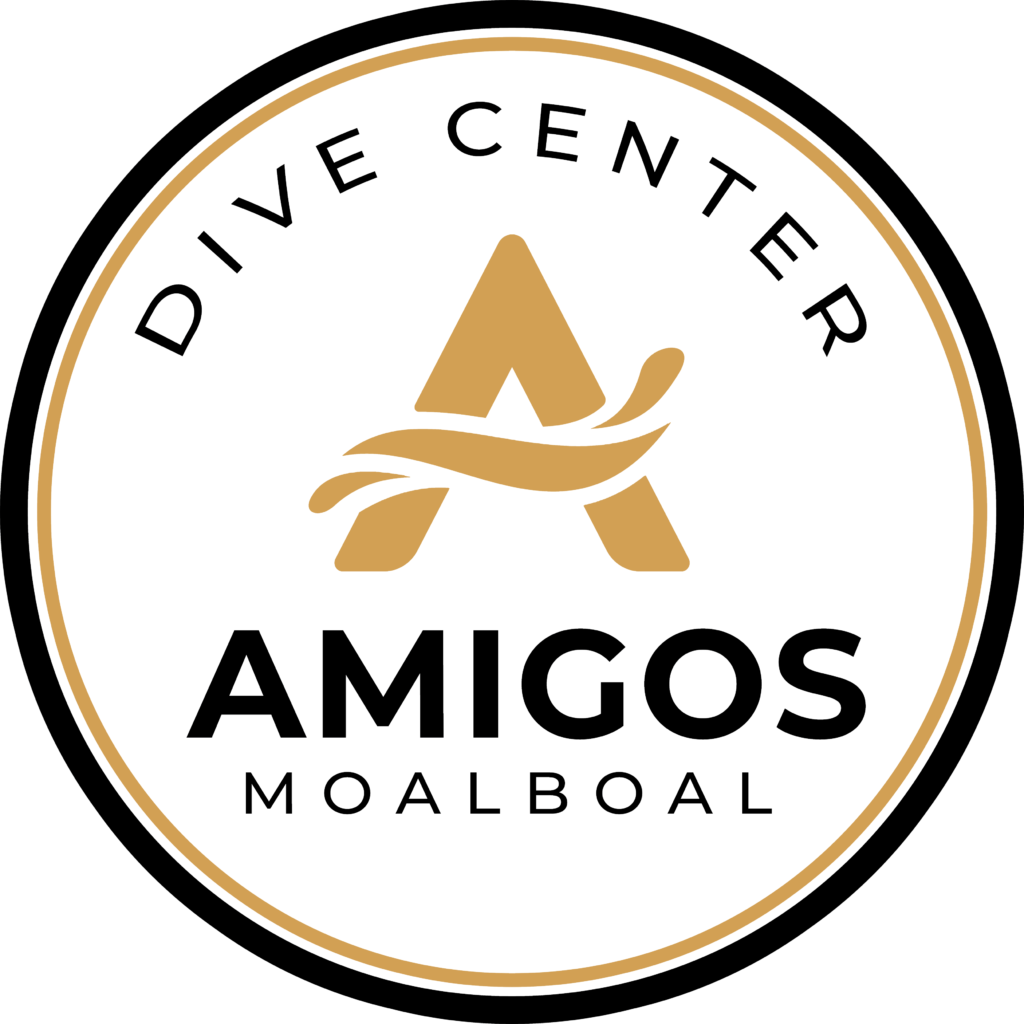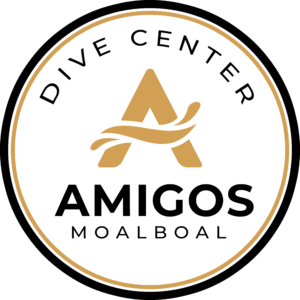scuba diving related Frequently Asked Questions
What is scuba diving?
Scuba diving is an underwater activity where divers use a self-contained underwater breathing apparatus (SCUBA) to breathe and explore beneath the water’s surface.
Why should i go diving with amigos dive center?
- We have the most handsome, friendly, funny, professional and dedicated divemasters.
- Your safety will be our priority.
- We are located in the heart of Moalboal, walking distance from plenty of hotels, shops, restaurants, etc.
- We have a fleet of boats that were built with comfortability and practicality in mind, specific for scuba divers.
What’s the difference between snorkeling and scuba diving?
Snorkeling: Surface activity using a snorkel and mask.
Scuba diving: Involves breathing underwater with a tank and exploring greater depths.
Which diving experience is best for beginners?
If you’re new to diving, the Open Water course is the perfect place to start. If you just want to try diving without committing to a certification, the Try Scuba experience is a great choice!
Why should i take my scuba courses with amigos dive center?
- We have the most professional, handsome and dedicated instructors.
- We are located in the heart of Moalboal, walking distance from plenty of hotels, shops, restaurants, etc.
- You can choose between English, Spanish, Chinese, Dutch, German, Danish, Swedish or even Basque as your learning language.
- Your classroom will be filled with millions of sardines, turtles and, occasionally, a whale shark! True story!
- We have a fleet of boats that were built with comfortability and practicality in mind, specific for scuba divers.
Do I need certification for all dives?
No! Some experiences, like Try Scuba, don’t require certification. However, if you want to dive independently (without direct supervision of an instructor or divemaster) you’ll need at least an Open Water certification.
When do I need a refresher course?
We recommend you take our refresher course if your last dive was six or more months ago.
What marine life can I see?
Depends on the location!
Here in Moalboal we are lucky to have a rich marine biodiversity. On a regular dive either on the house reef or any of the other dive sites we visit regularly, you will easily encounter:
- Sardines. Duh!
- Turtles. Mostly green turtles and some hawksbill. All of them extremely social.
- Clown fish aka Nemo. Plenty, in all variations and colors.
- Tuna.
- Yellowspotted trevally.
- Pipe fish (plenty). Ghost and banded are also common.
- Octopus. Common reef octopus and occasionally the BRO (Blue Ring Octopus).
- Lion fish.
- Needle fish.
- Trumpet fish.
- Scorpion fish. Careful where you put your hand!
- Stone fish. Also with this one, careful!
- Batfish. Not shy and curious fellas.
- Boxfish (yes! that little cute yellow one with polka dots!)
- Frogfish.
- Banded sea krait.
- Spotted moray.
- Titan trigger fish. No worries, the ones here are not aggressive.
- Whale shark. You need to be lucky…
- Thresher shark. Few have witnessed them hunting sardines, very low chances.
From the surface or boat:
- Dolphins.
- Pilot whales.
Which dive offers the best marine life experience?
If you want to see incredible marine life, Pescador Island is famous for its vibrant coral reefs and diverse fish species. For a truly unique experience, the Sardine Run offers an unforgettable view of thousands of sardines moving in giant schools.
What’s the difference between Open Water and Advanced Open Water?
The Open Water course is for beginners, teaching you the basics of scuba diving. The Advanced Open Water course helps you improve your skills, explore deeper dives, and experience new types of diving, like night or wreck diving.
How long does it take to get certified?
All courses include classroom sessions, pool training, and open water dives.
Open Water Diver course takes 2 to 3 days.
Advance Open Water Diver course takes 2 days.
Rescue Diver course takes 4 to 7 days.
Divemaster course takes 3 weeks.
Is scuba diving safe?
Yes, when proper training, equipment, and safety procedures are followed. Most accidents occur due to ignoring basic rules.
What are the age requirements for scuba diving?
The minimum age for certification is 10 years old (Junior Open Water Diver).
Do I need to be a strong swimmer?
You don’t need to be an athlete, but you should be comfortable in the water and able to swim at least 200 meters and float for 10 minutes.
Can I scuba dive if I have a medical condition?
Some conditions may affect your ability to dive. You’ll need to complete a medical questionnaire and possibly consult a diving medical professional.
How deep can I dive?
DSD Divers: Up to 12 meters (39 feet)
Open Water Divers: Up to 18 meters (60 feet)
Advanced Divers: Up to 30 meters (100 feet)
Technical diving can exceed these depths with special training.
How long can you stay underwater?
Dive time depends on depth, tank size, breathing rate, and dive plan. A typical recreational dive lasts 30 to 60 minutes.
What equipment do I need?
Basic scuba gear includes:
Mask & snorkel
Fins
Wetsuit
BCD (Buoyancy Control Device)
Regulator
Dive computer or depth gauge
Tank
All of it provided by Amigos Dive Center. Dive computer is provided during courses but you can rent one for your fun dive.
Can I fly after scuba diving?
Yes, but wait at least:
12 hours after one dive
18 hours after multiple dives
This helps prevent decompression sickness.
Can I scuba dive if I wear glasses?
Standard masks don’t fit over glasses, but you can:
Use a prescription mask
Wear contact lenses if comfortable underwater
What is scuba diving?
Scuba diving is an underwater activity where divers use a self-contained underwater breathing apparatus (SCUBA) to breathe and explore beneath the water’s surface.
What’s the difference between snorkeling and scuba diving?
Snorkeling: Surface activity using a snorkel and mask.
Scuba diving: Involves breathing underwater with a tank and exploring greater depths.
Which diving experience is best for beginners?
If you’re new to diving, the Open Water course is the perfect place to start. If you just want to try diving without committing to a certification, the Try Scuba experience is a great choice!
Do I need certification for all dives?
No! Some experiences, like Try Scuba, don’t require certification. However, if you want to dive independently (without direct supervision of an instructor or divemaster) you’ll need at least an Open Water certification.
When do i need a refresher course?
We recommend you take our refresher course if your last dive was six or more months ago.
What marine life can I see?
Depends on the location!
Here in Moalboal we are lucky to have a rich marine biodiversity. On a regular dive either on the house reef or any of the other dive sites we visit regularly, you will easily encounter:
- Sardines. Duh!
- Turtles. Mostly green turtles and some hawksbill. All of them extremely social.
- Clown fish aka Nemo. Plenty, in all variations and colors.
- Tuna.
- Yellowspotted trevally.
- Pipe fish (plenty). Ghost and banded are also common.
- Octopus. Common reef octopus and occasionally the BRO (Blue Ring Octopus).
- Lion fish.
- Needle fish.
- Trumpet fish.
- Scorpion fish. Careful where you put your hand!
- Stone fish. Also with this one, careful!
- Batfish. Not shy and curious fellas.
- Boxfish (yes! that little cute yellow one with polka dots!)
- Frogfish.
- Titan trigger fish. No worries, the ones here are not aggressive.
- Whale shark. You need to be lucky tho.
- Thresher shark. Few have witnessed them hunting sardines, very low chances.
From the surface or boat:
- Dolphins.
- Pilot whales.
Which dive offers the best marine life experience?
If you want to see incredible marine life, Pescador Island is famous for its vibrant coral reefs and diverse fish species. For a truly unique experience, the Sardine Run offers an unforgettable view of thousands of sardines moving in giant schools.
What’s the difference between Open Water and Advanced Open Water?
The Open Water course is for beginners, teaching you the basics of scuba diving. The Advanced Open Water course helps you improve your skills, explore deeper dives, and experience new types of diving, like night or wreck diving.
How long does it take to get certified?
All courses include classroom sessions, pool training, and open water dives.
Open Water Diver course takes 2 to 3 days.
Advance Open Water Diver course takes 2.
Rescue Diver course takes 4 to 7 days.
Divemaster course takes 3 weeks.
Is scuba diving safe?
Yes, when proper training, equipment, and safety procedures are followed. Most accidents occur due to ignoring basic rules.
What are the age requirements for scuba diving?
The minimum age for certification is 10 years old (Junior Open Water Diver).
Do I need to be a strong swimmer?
You don’t need to be an athlete, but you should be comfortable in the water and able to swim at least 200 meters and float for 10 minutes.
Can I scuba dive if I have a medical condition?
Some conditions may affect your ability to dive. You’ll need to complete a medical questionnaire and possibly consult a diving medical professional.
How deep can I dive?
DSD Divers: Up to 12 meters (39 feet)
Open Water Divers: Up to 18 meters (60 feet)
Advanced Divers: Up to 30 meters (100 feet)
Technical diving can exceed these depths with special training.
How long can you stay underwater?
Dive time depends on depth, tank size, breathing rate, and dive plan. A typical recreational dive lasts 30 to 60 minutes.
What equipment do I need?
Basic scuba gear includes:
Mask & snorkel
Fins
Wetsuit
BCD (Buoyancy Control Device)
Regulator
Dive computer or depth gauge
Tank
All of it provided by Amigos Dive Center. Dive computer is provided during courses but you can rent one for your fun dive.
Can I fly after scuba diving?
Yes, but wait at least:
12 hours after one dive
18 hours after multiple dives
This helps prevent decompression sickness.
Can I scuba dive if I wear glasses?
Standard masks don’t fit over glasses, but you can:
Use a prescription mask
Wear contact lenses if comfortable underwater

